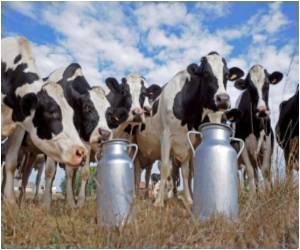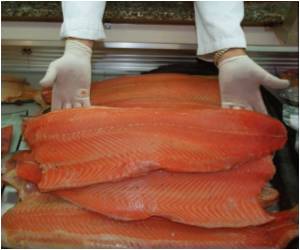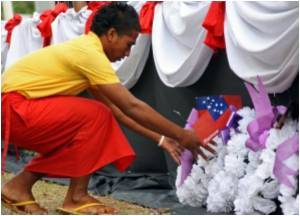Restrictions on foods from Japan widens in Asia amid radiation concern. Supermarkets in Asia and restaurants in Little Tokyo are suffering from the Japan's food chain.

South Korea said it was considering doing the same while a host of other Asian nations have been testing Japanese food imports since radiation started leaking from the Fukushima No. 1 plant, which was crippled by a devastating earthquake and tsunami nearly two weeks ago.
The testing has so far not detected any major contamination of imports, and Japanese as well as other authorities around the world have insisted the crisis will not be as bad as the Chernobyl disaster in 1986.
But with radiation continuing to leak and Japanese authorities unable to say how much contamination has already occurred, nor exactly where it has gone, people around the Asia-Pacific region are growing increasingly anxious.
"Over the past two weeks we've had the lowest number of customers since I opened three years ago," said Japanese restaurateur Shigeyoshi Yasumoto, who runs the Saika eatery in the Philippine capital's "Little Tokyo" enclave.
Across the street, a speciality Japanese mini-supermarket was almost empty of customers this week and the Filipino store manager said business had almost dried up.
Advertisement
Japan has detected radiation exceeding legal limits in 11 kinds of vegetable grown near the damaged plant. The government Wednesday banned the shipments of some of those vegetables, as well as untreated milk, from the affected areas.
Advertisement
Hong Kong said it would ban milk products, fruits and vegetables from five prefectures near the Fukushima plant after samples of vegetables showed levels of radiation far above normal.
Thousands of people work in about 600 Japanese restaurants in the southern Chinese city.
"We can see the impact now, a drastic drop in these businesses and it is threatening the livelihood of people who work (in Japanese restaurants)," Yuen Fuk-wo, chairman of the Eating Establishment Employees General Union, told AFP.
Tensions were similarly rising in South Korea, where some retailers and consumers were taking no chances despite the nation's food safety agency testing all food imports from Japan.
Two of the biggest South Korean supermarket chains, Lotte Mart and Homeplus, suspended sales of some Japanese fish this week.
"The customs inspection officials declared them safe but we decided to ban them from stores because consumers were so afraid," said a Homeplus spokesman, adding the retailer had bought more fish from Russia to fill the void.
Huh You-Kyung, a lawyer in Seoul, said she had no plans to eat even fish caught at home, one of the closest countries to Japan geographically.
"You may say I'm overreacting with baseless fear, but I'm trying to think as protectively as possible for my baby daughters' safety," she said.
The World Health Organization has given a guarded response to the situation in Japan, cautiously endorsing the government's actions while emphasising that the contamination threat for the food chain remains unknown.
"We still don't have a lot of specific information," Swiss-based WHO spokesman Gregory Hartl told AFP by telephone when asked about how much radiation was leaking and the dangers this posed for people and the food chain.
But he added: "It appears to be the case that they (Japanese authorities) have taken the precautionary measures necessary."
Pavel Tkalich, an engineer who advised authorities in Ukraine about how radiation had spread following the Chernobyl disaster, similarly said no one yet knew the extent of contamination in the food chain in and around Japan.
"Everything depends on the quantity (of radiation)," said Tkalich, who is now an associate professor at the National University of Singapore's civil engineering department.
"How much of the radioactive material falls into the agriculture, how much exactly gets into the water, but the information is not yet clear."
In the case of Chernobyl, millions of people are believed to have been exposed to some form of radiation in Ukraine, Belarus and Russia, where millions of acres (hectares) of farming and forest land remain contaminated.
Source-AFP














